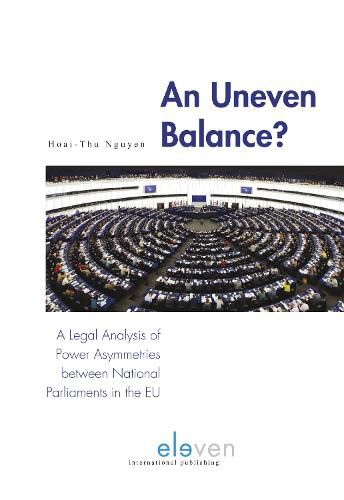Readings Newsletter
Become a Readings Member to make your shopping experience even easier.
Sign in or sign up for free!
You’re not far away from qualifying for FREE standard shipping within Australia
You’ve qualified for FREE standard shipping within Australia
The cart is loading…






Almost a decade after the entry into force of the Treaty of Lisbon, An Uneven Balance? A Legal Analysis of Power Asymmetries between National Parliaments in the EU takes the financial and monetary crisis in the EU as a cause to re-evaluate the position of national parliaments in a post-Lisbon EU. The Treaty of Lisbon - also labelled as the ‘Treaty of Parliaments’ - significantly strengthened the role of national parliaments and the position of the European Parliament in the EU.
This book assesses the role that national parliaments play for representative democracy in the European Union and provides a comprehensive legal analysis of power asymmetries that exist between national parliaments in the EU. It analyses how such asymmetries were exacerbated by the Euro crisis and illustrates different ways in which the negative implications for EU representative democracy resulting from such power asymmetries can be mitigated.
An Uneven Balance? is of value to both academics and policymakers at European and national level. It contributes to the on-going discussions on the EU’s democratic credentials and on the role of parliaments therein.
$9.00 standard shipping within Australia
FREE standard shipping within Australia for orders over $100.00
Express & International shipping calculated at checkout
Almost a decade after the entry into force of the Treaty of Lisbon, An Uneven Balance? A Legal Analysis of Power Asymmetries between National Parliaments in the EU takes the financial and monetary crisis in the EU as a cause to re-evaluate the position of national parliaments in a post-Lisbon EU. The Treaty of Lisbon - also labelled as the ‘Treaty of Parliaments’ - significantly strengthened the role of national parliaments and the position of the European Parliament in the EU.
This book assesses the role that national parliaments play for representative democracy in the European Union and provides a comprehensive legal analysis of power asymmetries that exist between national parliaments in the EU. It analyses how such asymmetries were exacerbated by the Euro crisis and illustrates different ways in which the negative implications for EU representative democracy resulting from such power asymmetries can be mitigated.
An Uneven Balance? is of value to both academics and policymakers at European and national level. It contributes to the on-going discussions on the EU’s democratic credentials and on the role of parliaments therein.